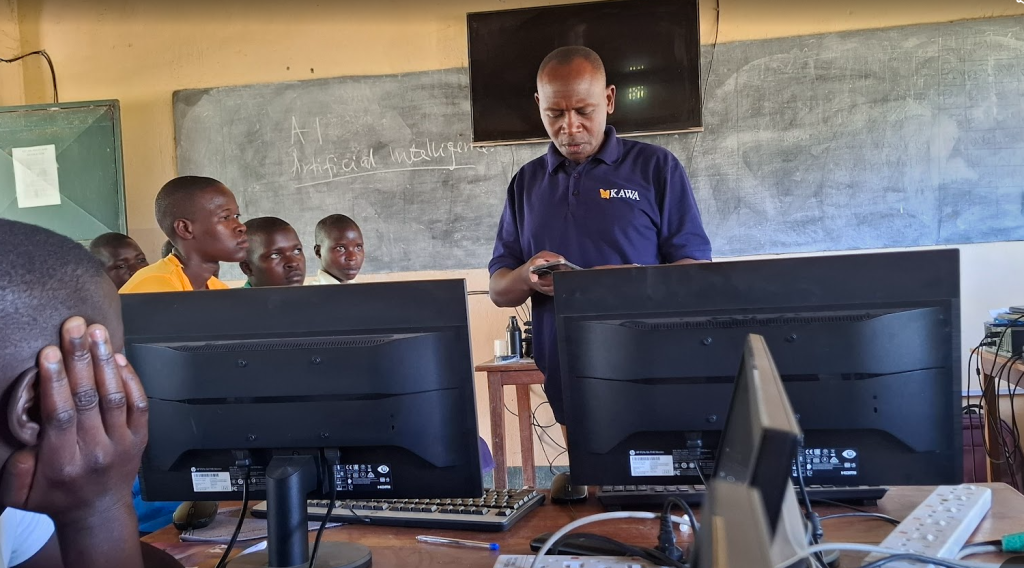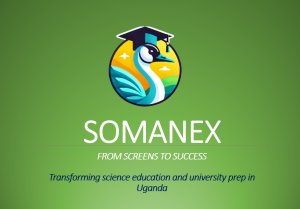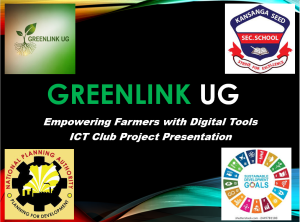Introduction to ICT Clubs in Uganda

In the 21st century, digital literacy is no longer optional—it is essential. Recognizing the urgent need to prepare Uganda’s youth for a rapidly evolving digital world, the Uganda Communications Commission (UCC), under its Universal Communications Service Access Fund (UCUSAF) program, launched the ICT Clubs initiative. This program is designed to ensure that learners across the country not only have access to computers but also the skills, knowledge, and mindset needed to use technology meaningfully.
Over the years, UCC has made commendable efforts to equip secondary schools with computer laboratories. To date, more than 1,000 schools across Uganda have received computers and other digital infrastructure through UCC’s support. The underlying goal of this investment is to turn schools into community ICT hubs, where learners and local communities alike can benefit from access to technology, digital learning resources, and improved career opportunities. The philosophy is simple but powerful: by empowering schools with ICT tools, we empower entire communities to participate in the global digital economy.
However, the UCC’s field monitoring revealed a significant challenge. In many of the schools equipped with computers, the labs were either underutilized or completely idle. In some cases, equipment was gathering dust due to a lack of knowledgeable teachers, low student engagement, or absence of structured ICT programs. This underutilization posed a serious threat to the sustainability and impact of the investment. To bridge this gap, UCC designed a student-centered solution—the establishment of ICT Clubs in secondary schools—with the aim of putting the power of digital transformation directly into the hands of young people.
To implement this initiative at scale and with structure, UCC partnered with the Kisubi Associated Writers’ Agency (KAWA). KAWA was given the mandate to establish ICT Clubs in selected secondary schools across Uganda. Their role includes conducting in-person training sessions, providing digital resources, mentoring club members and patrons, and ensuring long-term sustainability of the clubs. Each school benefits from structured support in the form of handbooks, training guides, presentations, and access to digital platforms such as www.ictclubs.ug. The platform hosts learning materials, showcases student projects, and serves as a national coordination point for ICT Club activities.
So, what exactly is an ICT Club? An ICT Club is a formal student organization within a secondary school, created to give learners a space to explore and engage with technology beyond the traditional classroom curriculum. It is a space where innovation, curiosity, and creativity are encouraged, and where students take the lead in managing, learning, and applying ICT skills. These clubs are not meant to replace ICT lessons, but rather to complement them through practical, project-based, and peer-led activities.
Within an ICT Club, students take part in a wide variety of activities such as coding, programming, game development, website creation, mobile app design, digital media production, and basic hardware troubleshooting. Advanced clubs may also explore areas like robotics, cybersecurity, artificial intelligence (AI), and database management. Students don’t just learn theory—they build real-world solutions, experiment with technology, and showcase their innovations during district, regional, national, and even international competitions. Additionally, members are exposed to mentorship opportunities, workshops, and guest talks from industry professionals, allowing them to connect with Uganda’s growing tech ecosystem.
The benefits of participating in an ICT Club are both broad and deep. On the technical side, students gain valuable skills in programming languages such as Scratch, HTML, and Python, along with experience using digital tools like Canva, Google Workspace, and Microsoft Office. They also learn how to manage school ICT resources, diagnose basic hardware problems, and stay safe online. These are practical skills that open doors to higher education opportunities and careers in technology, engineering, design, and entrepreneurship.
However, the clubs also emphasize soft skills that are critical for success in any field. These include leadership, teamwork, communication, time management, creativity, and problem-solving. As students collaborate on projects, lead their peers, and present their work to wider audiences, they build confidence and a sense of purpose. For example, a club might develop a campaign to raise awareness about climate change using digital posters and videos, or create a mobile app to track school attendance. These real-world projects allow students to see themselves as contributors to their communities, not just consumers of education.
Importantly, ICT Clubs support Uganda’s Competence-Based Curriculum (CBC), which shifts learning from rote memorization to active participation, critical thinking, and real-life application. Through hands-on projects, peer mentorship, and integration with other subjects like science and entrepreneurship, ICT Clubs help learners connect academic content with digital tools. A student may, for instance, apply spreadsheet skills learned in the club to analyze data in a mathematics class, or use video editing tools to document an agriculture project.
To ensure success, each club operates under a structured model. KAWA provides each school with a standard constitution, guiding how the club is formed, how leaders are elected, and how activities are managed. Typically, each club has a President, Vice President, Secretary, Publicity Coordinator, and Technical Support Lead. These leadership roles give students ownership and responsibility. Teachers, known as club patrons, play a guiding role by mentoring students, facilitating access to resources, and helping the club align with school objectives.
All participating schools receive a copy of the ICT Club Handbook, which outlines the goals, code of conduct, weekly activity ideas, and guidance on managing the ICT lab. In addition, clubs receive regular in-person support and remote mentorship from KAWA facilitators, and are encouraged to document and submit monthly reports to show progress, share challenges, and celebrate achievements.
The ICT Club movement is already bearing fruit. Students in rural and urban schools alike are gaining confidence in their ability to use technology creatively. In some schools, ICT Clubs have led campaigns on cyberbullying awareness, built blogs for school events, or organized digital literacy sessions for teachers and parents. These activities not only enrich student learning but also extend the impact of ICT to the wider community.
In conclusion, the ICT Clubs initiative is a transformational program that is redefining education in Uganda. By giving students a space to explore, innovate, and lead, it prepares them for the challenges and opportunities of the digital age. It aligns with Uganda’s national development goals, strengthens the integration of ICT in schools, and promotes the kind of learning that builds character, competence, and community impact. As more schools join the movement and as student projects begin to address real problems in health, environment, and education, the ICT Clubs of today are shaping the innovators, leaders, and entrepreneurs of tomorrow.





